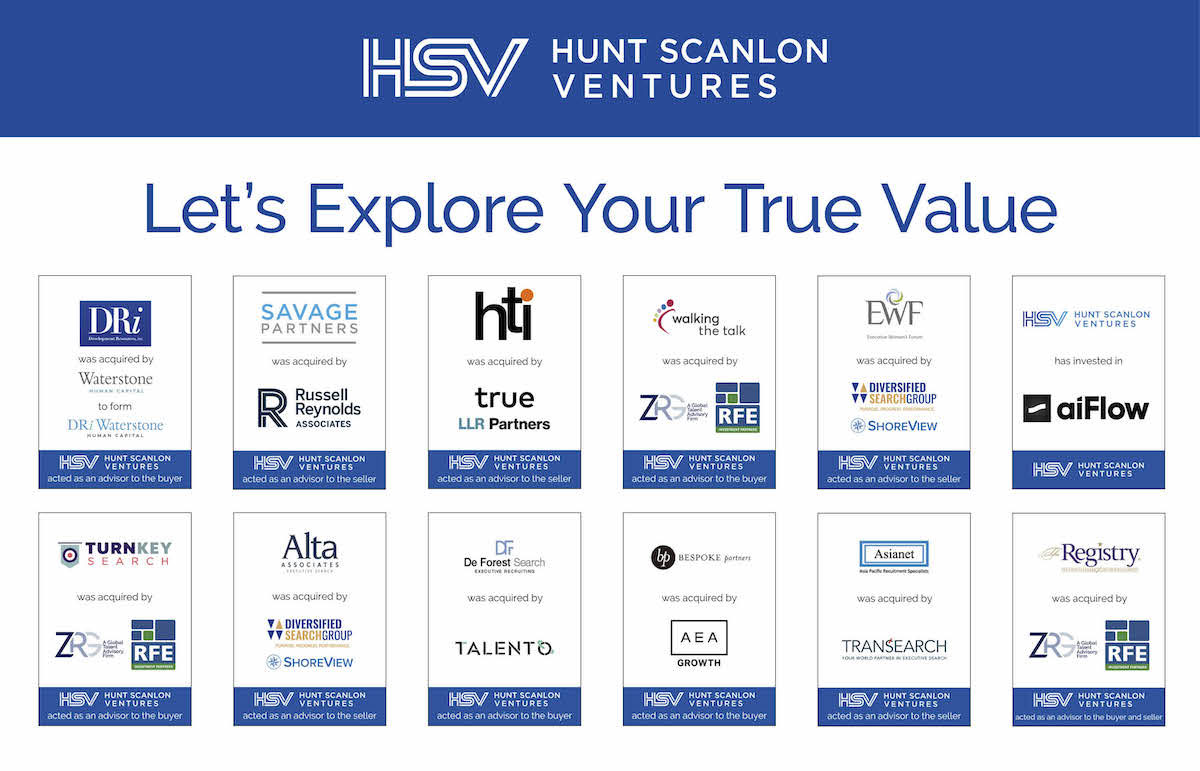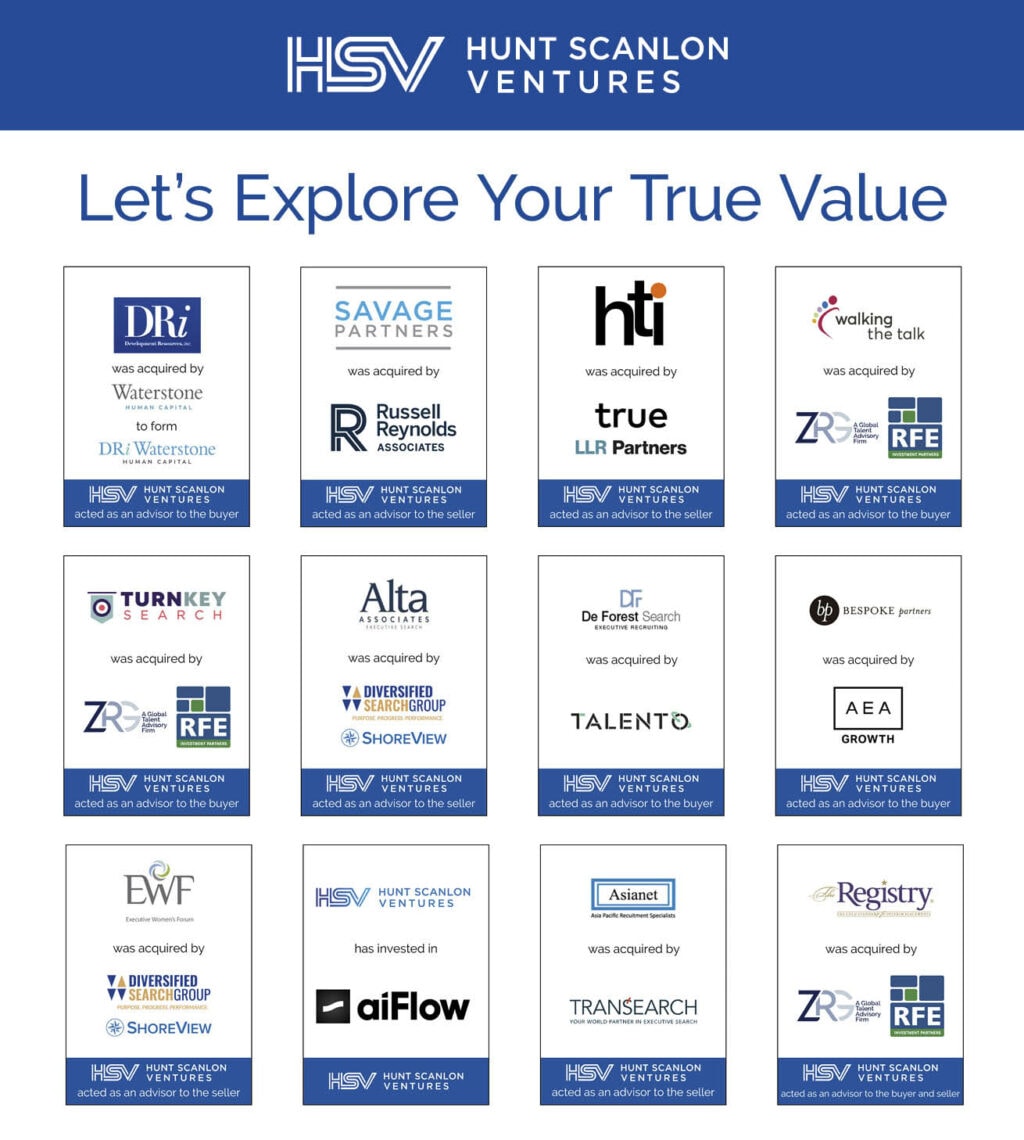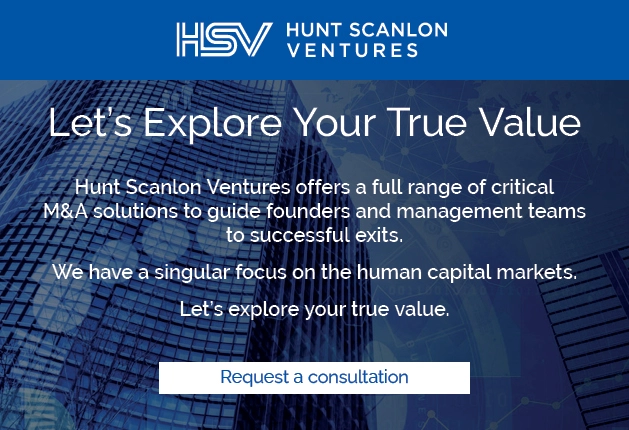Artificial intelligence and generative AI will bring transformational resources to recruiting. Drew Seaman, managing director at Hunt Scanlon Ventures, examines how AI will influence the talent game as investment in the space heats up.
More than 75% of CEOs predict that AI will change their businesses in the next 36 months. That means the very structure of organizations and their future talent demands are in for one massive jolt.
It also begs the larger question: What changes are in store for recruiters and talent acquisition leaders as AI becomes fully embedded in talent searches?
Drew Seaman, a managing director with Hunt Scanlon Ventures, took that puzzling query to Katrina Cheverton, chief executive of Savannah Group, an executive search and leadership consulting firm based in London.
AI Changing the Talent Equation
Ms. Cheverton and her partners have been early adopters of AI. Several years ago, they got to work on building an AI-supported talent sourcing and analytics platform dubbed MapX.
Given the high level of data that talent experts need to source through, finding a way to improve process efficiency allows for more high value work to be accomplished. “We saw that executive talent acquisition outcomes could be improved through applying data-backed understanding of candidate pools and trends,” said Ms. Cheverton.
“AI presents a huge opportunity for the executive search and broader talent consulting sectors to provide more rigor, value and agility in how we address leadership and skills gaps.”
The idea behind the custom-built technology, said Ms. Cheverton, “was to supercharge the speed and effectiveness of the talent acquisition process.” Built by leadership experts, data scientists and engineers, the plan is for MapX tools to enable the identification of high quality, hard-to-find candidate populations at the press of a button, or two.
Needle In a Haystack
Ms. Cheverton calls MapX “revolutionary” as it aims to uncover ‘needle in a haystack’ leaders who are significantly more qualified and more diverse. MapX uses natural language processing and machine learning to categorize information and understand seniority, function, and diversity.
“Executive search, like other professional services categories, has been done generally the same way for over 60 years,” said Mr. Seaman. By leveraging the newest technology, he noted, human capital leaders can look at talent from a new angle.
“AI presents a huge opportunity for the executive search and broader talent consulting sectors to provide more rigor, value and agility in how we address leadership and skills gaps,” Ms. Cheverton agreed.
“Correctly applied, organizations will be the big beneficiaries of AI’s predictive talent analytics capabilities.”
Enabling High Value Expertise
“While generative AI continues to receive buzz throughout the human capital industry, it is crucial to remember that it is not a human replacement tool,” said Mr. Seaman, but rather a means of freeing experts from the time-intensive work of processing data.
“Ultimately, AI will leave more time for executive search consultants and researchers to spend on the high-value work of engaging with and evaluating candidates,” said Alex Martin, a Savannah Group managing partner who spearheads talent intelligence for the firm.
Through successful use, AI will allow for a better ability to find and land the perfect talent in the ongoing war on talent. “Correctly applied, organizations will be the big beneficiaries of AI’s predictive talent analytics capabilities,” he said.
“By analyzing historical data and trends, talent leaders will be better able to anticipate future hiring needs and proactively source candidates with the right skills and expertise,” said Mr. Martin. “This strategic approach not only streamlines future search processes but also ensures that organizations are well-positioned to meet evolving business demands,” he noted.
Article By

Drew Seaman
Drew Seaman is a Managing Director at Hunt Scanlon Ventures. He is responsible for co-managing the firm’s investment portfolio of executive search, talent acquisition, private equity, and investment firms. In addition to sourcing new opportunities and managing the firm’s current investments, Drew leads the technical aspects of client engagements, including valuation and financial analysis and the preparation of investment marketing materials.
Drew began his career in wealth management before joining BMO Capital Markets as an Investment Banking Associate in the Financial Institutions Group. Drew assisted with transaction execution and prepared comprehensive valuation and financial analyses for clients in the specialty finance, asset and wealth management, and insurance sectors.
Drew earned a B.A. in Economics from DePauw University, where he was quarterback on the varsity football team. He earned his M.B.A. with concentrations in Finance and Accounting from NYU’s Stern School of Business. Connect with Drew.






